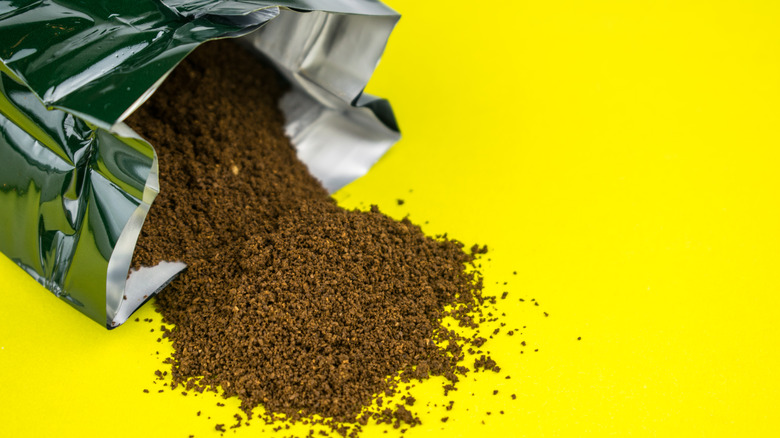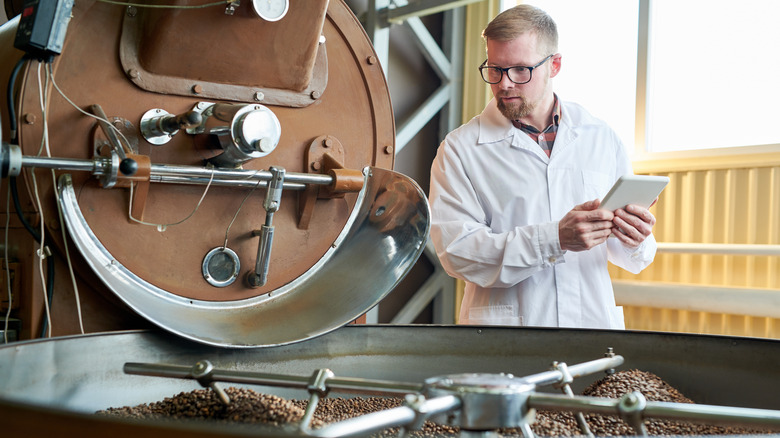Your Bag Of Pre-Ground Coffee Might Not Entirely Be What You Think It Is
Horror stories abound over un-thinkables such as dried insects in ground black pepper or mystery meats posing as chicken or beef. It's enough to make you pick, poke, and prod everything on your plate. However, most of these rumors are myths or exaggerations — at least, we hope they are. But, what if some credible evidence emerges, bringing attention to dubious debris packed inside what could be millions of bags containing pre-ground coffee beans?
It's no small issue with ground coffee dominating the U.S. coffee retail market to the tune of about $2 billion annually, according to Statista. From leading coffee brands like Folgers, Starbucks, Maxwell House, Dunkin', Seattle's Best, and a myriad of coffee roasters across the globe, the coffee kings grind up mountains of beans every day. You'd be hard-pressed to find a home pantry without an aromatic bag of ground Arabica or Robusta coffee beans, which are the most popular bean types, according to Intercontinental Coffee Trading.
Unless you purchase whole beans and grind them yourself, there's always the chance of some grinding shenanigans. Here's a look at rogue ingredients found lurking inside coffee bags and tins.
Imposters in your coffee cup
As far back as 2014, Live Science reported filler ingredients in pre-ground coffee beans. Growing environmental challenges such as drought, increasing temperatures, and the spread of "coffee rust" disease, are coupled with increased demand. The supply issues have apparently inspired a solution among coffee producers: Spike pre-ground coffee with other "natural" ingredients, reports Live Science. As dubious as that may sound, most imposters were at least edible, including wheat, barley, rye, acai seeds, and corn.
However, twigs, dirt, parchment, and husks apparently made their way into the blends, according to the American Chemical Society (ACS), adding to the shady business of "coffee counterfeiting." The ACS findings pertained to ground, roasted coffee in Brazil, which routinely produces about 55 million bags of coffee annually, but, at the time of the study, had nosedived to a low of 45 million. With diminished profits, the incentive for fraud increased. The ACS reports that researcher Dr. Suzana Lucy Nixdorf and her team in Brazil, with a little help from the Brazilian government, came up with a test that detects and identifies foreign particles mixed within bags of ground coffee beans. The test identifies impurities with 95% accuracy, using what's known as liquid chromatography and statistical analysis.
Fast forward to 2022, finding coffee might be harder than ever and Brazil still leads the world in coffee production with an annual output of about 5.7 billion pounds, reports Coffee Affection. So, you might consider trading Folgers for fair trade.

